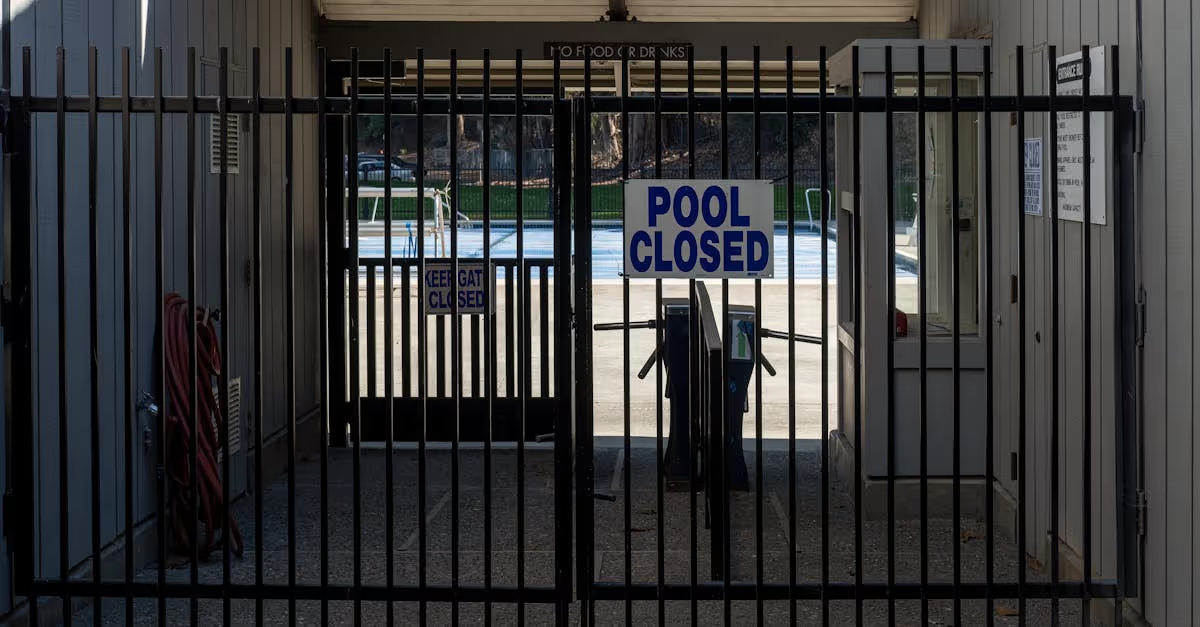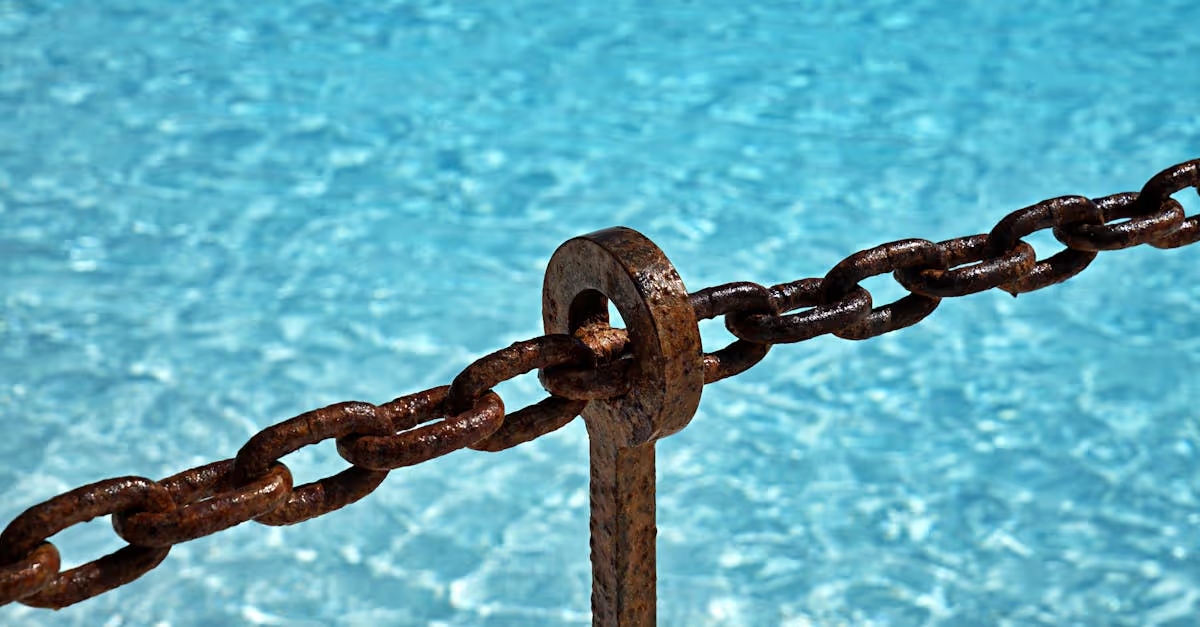Key Takeaways
- Seasonal Safety Checks are Essential: Regular inspections during seasonal transitions are crucial for identifying potential risks and ensuring pool safety, protecting families from accidents.
- Key Areas to Inspect: Focus on checking pool covers, water quality (pH levels, chlorine concentration), and equipment functionality (pumps and filters) to maintain a safe swimming environment.
- Leverage Technology: Utilize field service management software and homeowner service apps to streamline maintenance schedules, automate reminders, and enhance safety check efficiency.
- Community Engagement Matters: Encourage neighbors to participate in safety checks, fostering a culture of responsibility and shared knowledge about pool safety.
- Professional Assistance: When in doubt, hiring certified technicians for complex inspections can prevent costly repairs and ensure thorough maintenance, enhancing pool safety.
As the seasons change, so do the demands of pool maintenance. Did you know that nearly 5,000 children visit emergency rooms each year due to pool-related injuries? Ensuring pool safety during these transitional periods is crucial for protecting our loved ones and preventing accidents.
Performing safety checks isn’t just a good practice; it’s essential. From inspecting pool covers to checking water quality and equipment functionality, these steps help us create a safe swimming environment. By prioritizing safety checks as we move between seasons, we can enjoy our pools with peace of mind, knowing we’ve taken the necessary precautions to keep everyone safe.
Importance of Performing Safety Checks During Seasonal Transitions
Performing safety checks during seasonal transitions plays a critical role in maintaining pool safety. As temperatures change, conditions shift. This shift can impact pool infrastructure and safety standards. Regular inspections help identify potential risks, allowing us to tackle issues before they escalate.
In warmer months, we see increased pool usage. With nearly 5,000 children treated for pool-related injuries annually, these checks become even more pressing. Checking pool covers, water quality, and equipment functionality reduces risks and creates a safer environment for our families and friends.
- Inspect Pool Covers: A secure pool cover prevents unwanted access and keeps debris out. A responsible cover check before and after each season ensures it functions properly.
- Test Water Quality: Safe swimming water requires checking pH levels, chlorine concentration, and clarity. Regular testing protects against waterborne illnesses and maintains a pleasant swimming experience.
- Examine Equipment Functionality: Pumps, filters, and heaters should work seamlessly. If these tools falter, it often leads to unsafe water conditions. Checking equipment regularly helps guarantee everything operates smoothly.
In addition to these checks, employing smart technology can enhance our safety measures. For instance, using field service management software helps us streamline these processes. With automated field service solutions, we can schedule maintenance and inspections with ease, ensuring nothing gets overlooked.
Virtual appointments through a homeowner service app further improve efficiency. We can manage our pool’s upkeep right from our mobile devices. Plus, tech-savvy features enable us to receive reminders for important maintenance tasks. It's like having a digital assistant who reminds us when it’s time to refresh the safety checks!
Making a habit of these checks fosters a culture of safety within our community. We can share tips with neighbors and friends. After seeing how smoothly everything runs, who wouldn’t want to join in?
Have you ever had a pool scare that made you realize the importance of these checks? Imagine hosting a gathering and suddenly discovering a broken filter. That wouldn’t just be a party foul; it would be a potential risk for everyone. We can prevent those moments with proactive measures.
Safety checks benefit everyone, from the casual swimmer to the competitive diver. Let's embrace this responsibility together. Few joys compare to watching loved ones make splashes in the summer sun, knowing we’ve managed the safety aspect.
Prioritizing safety checks during seasonal transitions contributes significantly to creating a secure swimming environment. By regularly inspecting pool features, using technology, and sharing knowledge, we can enjoy our pools with peace of mind each season.
Reasons for Seasonal Safety Checks
Performing safety checks during seasonal transitions helps us maintain a safe swimming environment. We'll explore why these checks are essential and how they protect our pools and loved ones.
Increased Risks During Transitions
Seasonal changes bring unique challenges for pool owners. As temperatures fluctuate, potential hazards can crop up. One moment, we’re soaking in summer sun; the next, we might be facing freezing temperatures that could damage our pool's structure. Regular safety checks help catch issues like cracks or leaks before they escalate into costly repairs. Just as we wouldn't ignore a check engine light in our cars, we shouldn't overlook our pools. When did you last inspect your pool? Let’s make it a community effort to stay vigilant.
Equipment and Maintenance Considerations
Keeping our pool equipment in top shape is crucial, especially during transitions. Pools need proper filtration and chemical balance to stay safe. We can streamline this process using tools like field service management software or automated field service solutions. These systems help us schedule routine checks and manage maintenance efficiently. Think about it—who wouldn’t want to optimize technician routes or have a mobile workforce management app at our fingertips to track repairs? By leveraging service business software, we can ensure our pools remain inviting and functioning flawlessly all season long.
Key Safety Checks to Perform
Performing safety checks during seasonal transitions helps maintain a safe swimming environment. We focus on water quality, equipment, and safety gear to address common pool issues.
Water Quality Testing
Regular water quality testing is vital for a healthy pool. Testing pH levels, chlorine content, and other chemical balances keeps our swimming area safe. During seasonal changes, adjusting chemical levels according to weather conditions prevents imbalances. For instance, warmer temperatures can lead to algae growth. Frequent tests help catch any changes before they become a problem. We can use simple kits or automated solutions like Homeowner Service Apps to streamline testing. These tools support consistent monitoring, making pool maintenance less of a chore.
Equipment Inspection
Equipment inspections are crucial to avoiding costly repairs. We examine pumps, filters, heaters, plumbing, and electrical systems for signs of wear and tear. For example, a small leak can lead to larger issues if overlooked. Comprehensive inspections prevent breakdowns when we need our pools the most. Utilizing technician management software allows us to schedule these inspections efficiently. We can plan ahead and tackle maintenance tasks promptly, ensuring our equipment runs smoothly through each season.
Safety Gear and Accessories
Regularly checking safety gear and accessories helps keep everyone safe. We inspect pool covers, ladders, and safety fences to ensure they’re in good condition. Properly functioning gear prevents accidents and promotes a worry-free swimming experience. In our community, sharing tips and experiences around safety gear encourages proactive measures. Let's inspire everyone to invest in quality accessories. Staying informed about new safety products also contributes to a secure environment, making each swim enjoyable.
Best Practices for Seasonal Transition Safety
We can maintain pool safety during seasonal changes by adopting effective practices. These steps foster a community of responsible pool ownership and enhance everyone's swimming experience.
Establishing a Routine
Setting a regular schedule for safety checks makes compliance easier. We can create a checklist that includes inspecting pool covers, testing water quality, and examining equipment functionality. Checking these items at the start of each season keeps our pools safe and enjoyable. Using job scheduling software for technicians simplifies this task. The reminders that come with these tools help us stick to our safety routines.
For instance, imagine we combine our resources and set a weekly community check-in. We gather as neighbors, each bringing our favorite pool-related snack. While we inspect equipment together, we can share tips and experiences. Who doesn't love a potluck paired with safety checks?
Engaging Professionals
We should recognize that some aspects of pool maintenance are best left to professionals. Engaging certified technicians for complex inspections prevents us from facing costly repairs later on. Automated field service solutions streamline the scheduling process and help us find qualified experts easily. These tools provide access to a network of professionals, allowing us to find the best match for our needs.
When scheduling these checks, think about what we can learn from professionals. They often share insights that enhance our knowledge. And let’s not forget to ask for humorous pool stories from them. Everyone loves a good laugh, especially when discussing underwater mishaps!
By following these practices, we foster a strong sense of community and keep our pools safe all year round.
Conclusion
Prioritizing safety checks during seasonal transitions is essential for maintaining a secure swimming environment. By regularly inspecting our pools we can catch potential issues before they escalate. Utilizing technology and community engagement not only streamlines maintenance but also fosters a culture of safety among pool owners.
As we embrace each season let’s commit to these practices. This way we can ensure our pools remain safe and enjoyable for our families and friends. With diligence and care we can all swim with confidence knowing we’ve taken the necessary steps to protect our loved ones.
Frequently Asked Questions
Why is pool maintenance important during seasonal changes?
Pool maintenance is crucial during seasonal changes because fluctuating temperatures can damage pool infrastructure and increase safety risks. Regular maintenance helps identify issues like cracks or leaks early, preventing costly repairs and ensuring a safe swimming environment for users.
How often should I perform safety checks on my pool?
It is recommended to perform safety checks at least once a month, especially during seasonal transitions. Regular inspections help maintain water quality, check equipment functionality, and ensure safety gear is in good condition, providing a safer swimming experience.
What are some key safety checks for pool maintenance?
Key safety checks include inspecting pool covers for damage, testing water quality for proper chemical balance, and examining equipment such as pumps, filters, and plumbing for wear and tear. Regularly checking safety gear like ladders and fences is also essential.
How can technology help with pool maintenance?
Smart technology, such as field service management software and homeowner service apps, can streamline maintenance processes. These tools can schedule routine inspections, manage maintenance tasks efficiently, and help ensure that pool equipment is in top shape, enhancing safety and convenience.
What should I do if I find a crack or leak in my pool?
If you find a crack or leak, it’s important to address it immediately to prevent further damage. Contact a certified pool maintenance professional who can assess the situation and perform necessary repairs to maintain a safe swimming environment.
How can I involve my community in pool safety measures?
Engaging your community can be achieved through shared inspections, organizing potluck gatherings, and creating a checklist to promote routine safety checks. Encouraging neighbors to participate fosters a culture of responsibility and enhances overall pool safety for everyone.






